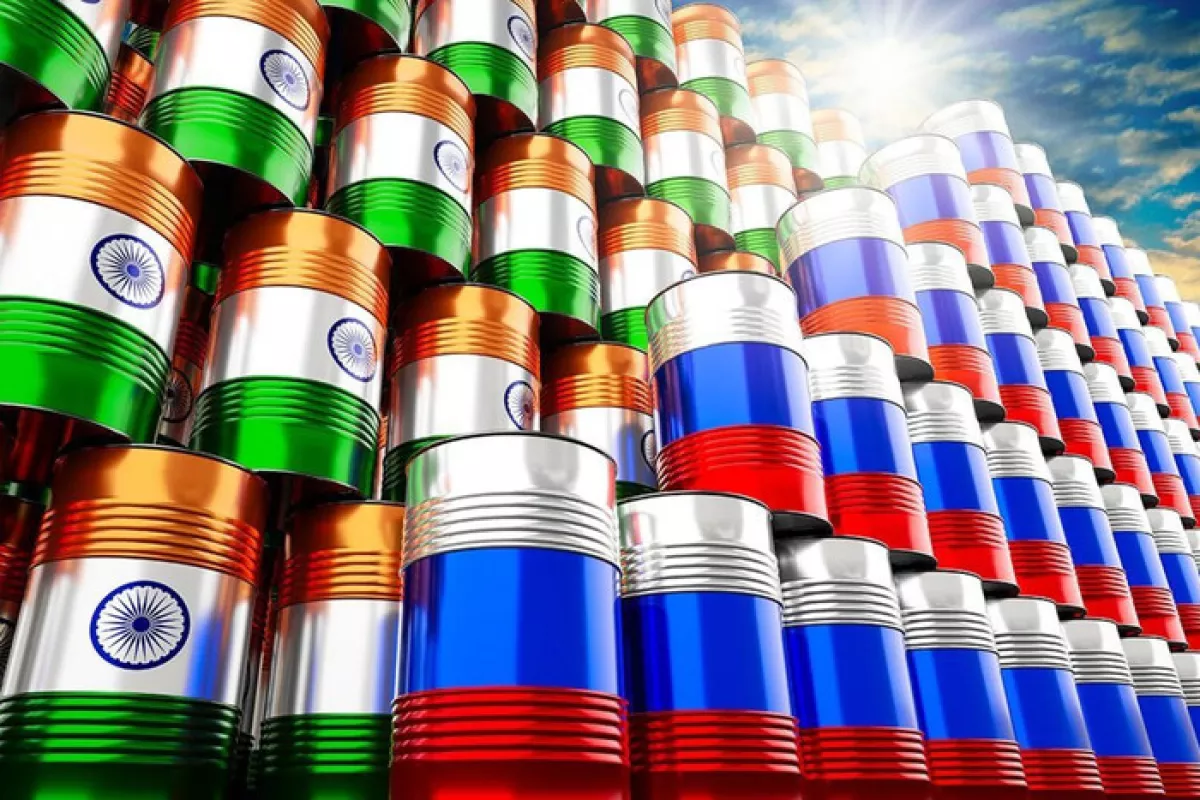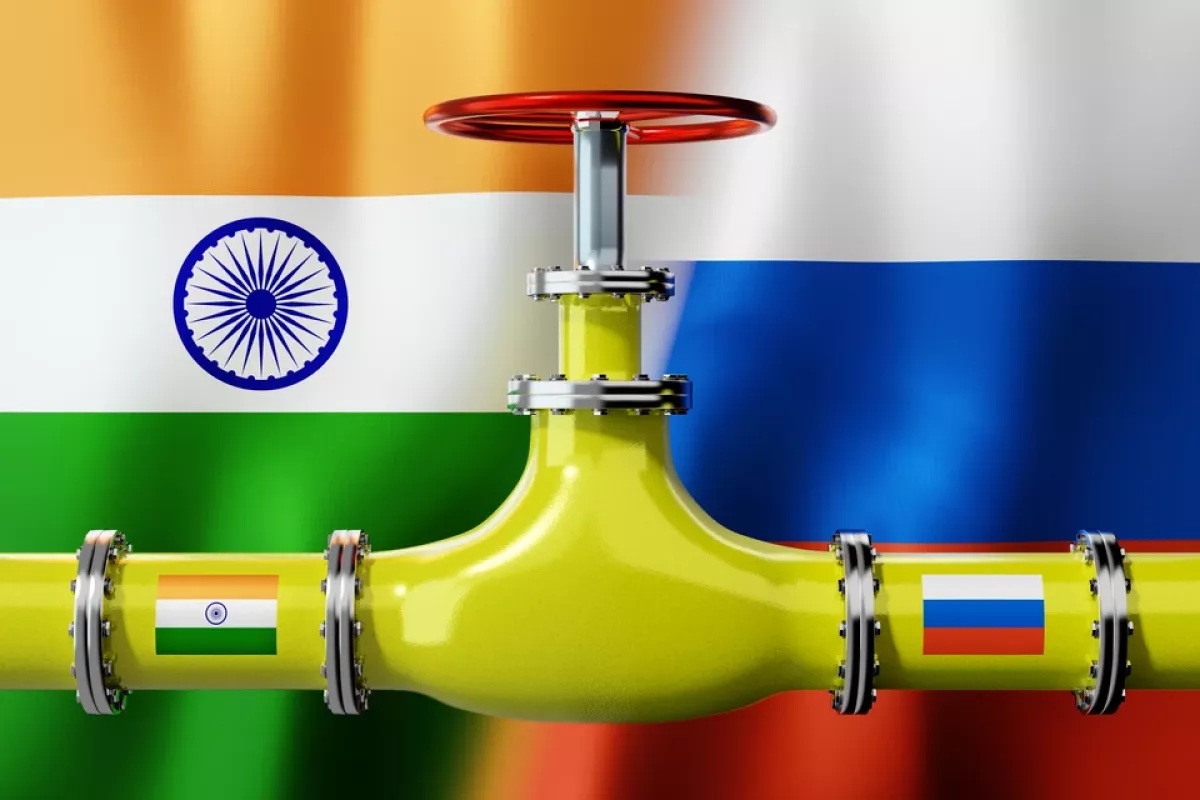India’s oil gambit The pursuit of profit as a verdict for Ukraine
While the international community searches for ways to end the bloody war in Ukraine, and Western countries impose unprecedented sanctions to restrain the aggressor, a drama unfolds on the global stage where economic pragmatism cynically prevails over humanitarian values and collective security. At the centre of this drama is India — a country that calls itself the world’s largest democracy, yet whose actions in the energy market directly contradict global efforts to restore peace.
Rapidly increasing purchases of Russian oil at bargain prices, New Delhi not only violates the spirit and letter of American sanctions but effectively becomes one of the key sponsors of the Russian war machine, consciously prolonging the conflict and pushing away prospects for a peaceful resolution. It has come to the point where U.S. President Donald Trump threatened to punish India if Indian refineries continue to buy Russian oil cheaply, which is under Western sanctions.
From the very beginning of Russia’s full-scale invasion in February 2022, it became clear that the West’s main weapon in combating aggression would be economic levers. The goal of sanctions imposed by the U.S. and its allies was simple and clear: to deprive the Kremlin of financial flows that feed its army, produce missiles, and pay mercenaries. The Russian oil and gas sector — the backbone of the country’s economy — became the main target. The introduction of a direct import embargo by the U.S. and the establishment of a “price cap” at $60 per barrel for other buyers were intended to dry up Moscow’s source of income, force it to come to the negotiating table, and stop the violence. This strategy was not just economic pressure but a real instrument of coercion for peace.
However, where some saw the necessity to stop the war, others saw an opportunity for enrichment. India, the world’s third-largest oil consumer, which before the war imported a negligible amount from Russia—less than 1%—has made a dizzying turnaround. Taking advantage of the fact that Russia, after losing the European market, was forced to offer its crude oil at significant discounts, Indian companies began to buy it in colossal volumes.
Today, Russia is the largest oil supplier to India, covering nearly 40% of its needs. However, each tanker arriving at Indian ports is filled not just with cheap crude that helps curb inflation. It is filled with blood-stained petrodollars that flow directly into the Russian budget and from there fund attacks on Ukrainian cities, the production of weapons that kill civilians. Thus, India’s position goes far beyond simple economic calculation. It is a conscious choice that makes India an indirect, yet no less significant, participant in the conflict on the side of the aggressor.

New Delhi’s position is a stab in the back to international efforts to establish peace. While Ukraine heroically fights for its independence and sovereignty, India is effectively creating an economic “safety cushion” for Russia. This allows the Kremlin not only to continue the war but also to feel confident on the international stage, seeing that economic isolation is not complete. Every barrel of oil purchased by India is another argument for Moscow not to cease hostilities but to continue them, hoping to wear down the West and Ukraine. This is a direct sabotage of the peace process.
India’s arguments about protecting national interests and ensuring energy security appear especially cynical against the backdrop of the tragedy unfolding in Europe. Officials in New Delhi claim they have not joined the sanctions and act solely in the interest of their population. For example, in a statement issued on August 4 by India’s Ministry of Foreign Affairs, which can be seen as a response to criticism from the US and EU over its import of Russian oil, it was stated:
“In fact, India began importing from Russia because traditional supplies were diverted to Europe after the outbreak of the conflict. The United States at that time actively encouraged such imports by India for strengthening global energy markets stability.
India’s imports are meant to ensure predictable and affordable energy costs to the Indian consumer. They are a necessity compelled by global market situation. However, it is revealing that the very nations criticizing India are themselves indulging in trade with Russia. Unlike our case, such trade is not even a vital national compulsion.
The European Union in 2024 had a bilateral trade of Euro 67.5 billion in goods with Russia. In addition, it had trade in services estimated at Euro 17.2 billion in 2023. This is significantly more than India’s total trade with Russia that year or subsequently. European imports of LNG in 2024, in fact, reached a record 16.5mn tonnes, surpassing the last record of 15.21mn tonnes in 2022.
Europe-Russia trade includes not just energy, but also fertilizers, mining products, chemicals, iron and steel and machinery and transport equipment [...]
In this background, the targeting of India is unjustified and unreasonable. Like any major economy, India will take all necessary measures to safeguard its national interests and economic security.”

Admittedly, such reasoning is deliberately misleading: today, these purchases directly finance a war recognised as an act of aggression by an overwhelming majority of UN member states. Invoking national interests when it comes to sponsoring mass murder and the destruction of a sovereign state is moral bankruptcy. For millions of Ukrainians whose lives have been shattered by war, India’s economic gains sound like a justification for complicity in a crime.
The problem is further exacerbated by the fact that India apparently not only consumes cheap Russian oil but also profits from its refining and subsequent export of petroleum products, including to countries that have imposed sanctions against Russia. This scheme allows for double gains: first by purchasing cheap crude, then by selling expensive refined products. Thus, Indian refineries have turned into a massive hub for laundering “toxic” Russian oil, masking its origin and returning it to global markets in the form of “clean” diesel or petrol.
India’s position reveals a dangerous trend in global politics, where the pursuit of short-term gain undermines the foundations of international law and collective security. By choosing the path of economic opportunism, New Delhi is not merely helping Russia continue the war but is sending a signal to the world: in the 21st century, it is possible to finance an aggressor with impunity, hiding behind rhetoric about national interests. This oil gambit is not a sign of wise and independent foreign policy. It is a cynical bet against peace that prolongs the agony of an entire people and makes the future of the entire international security architecture even more uncertain and alarming. And as long as Indian ports continue to receive Russian tankers, hopes for a swift and just end to the war in Ukraine remain under serious threat.








